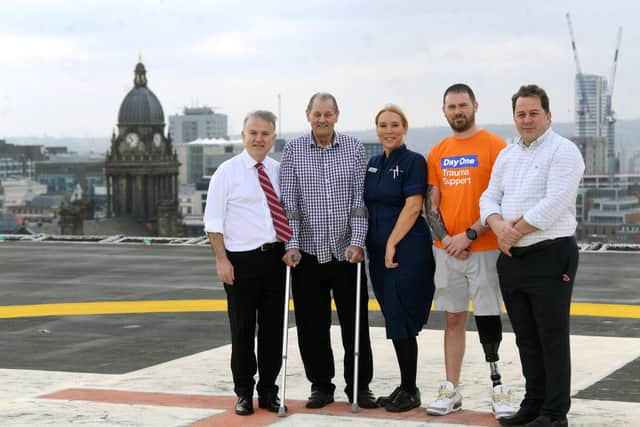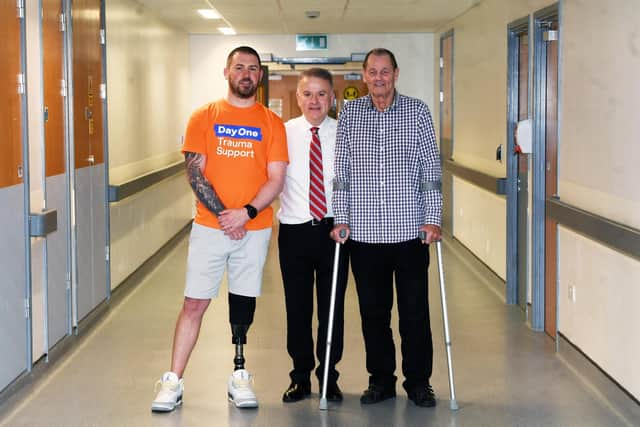Inside the Leeds hospital trauma surgery unit as it marks 10 years of saving lives in the city
and live on Freeview channel 276
Opened in April 2013, the Major Trauma Centre in the Jubilee Wing at the Leeds General Infirmary, is the second busiest trauma unit in the country. Treating over 16,000 seriously injured patients, with a 92.5 per cent overall survival rate.
Major Trauma refers to serious injury or multiple injuries, which could result in disability or death. Injuries include severe head, chest, abdominal and skeletal injuries, with more than half of major trauma cases in the UK caused by road traffic collisions and falls.
Advertisement
Hide AdAdvertisement
Hide AdThe centre was specifically designed across each floor of the building to facilitate close connection with each of the vital medical areas and resources. From the helipad on the roof patients can be transferred via a designated lift to the Emergency Department on the Ground Floor, up a floor to Theatres and Intensive Care Unit, and a second floor up to a dedicated major trauma ward, L10.


Prof. Peter Giannoudis, leads the Major Trauma team at LGI and said: “Working in trauma brings together highly-skilled teams from across multiple specialties to bring life-saving care to our patients. The extent of the trauma dictates which of those skills are needed, and our trauma teams can be made up of more than 20 specialists, including surgeons, nurses, anaesthetists, porters and more.
“We used to say that Major Trauma was a young man’s disease, but the fastest rising demographic of people to suffer major trauma is in people aged over 65, with an increase in falls from under 2m in height in the elderly.”
Henry Morris was seriously injured in a motorbike crash on the morning of June 21, 2018. Then, aged 32, he was riding from his home in Halifax to a new job in Leeds when a car pulled out from a side road on Whitehall Road, A58, in Wyke. The car hit Henry’s bike, crushing his leg between the bike and car before he was thrown off and rolled along the road.
Advertisement
Hide AdAdvertisement
Hide AdHenry was rushed to the Major Trauma Centre at LGI where he was treated for his life-changing injuries, including several breaks to his left leg and foot. Despite the best efforts of doctors, he had to have his left leg amputated.


Henry said: “It’s difficult and emotional to go back to the hospital after so many years. But I am indebted to these people who did so much. They saved my life and got me onto the road to recovery.”
Orthopaedic Trauma Consultant Mr Nik Kanakaris said; “Welcoming one of our patients, Henry, back to the unit today, and seeing his recovery journey, has been so rewarding for everyone in the team. It’s an immediate recognition of the work that we do.
“It’s important to recognise and thank all those who play a vital role in the major trauma network as we mark 10 years."
While on the trauma ward, Henry was helped by charity Day One Trauma Support, which was set up in Leeds by Prof Giannoudis to help people rebuild their lives following a catastrophic injury.